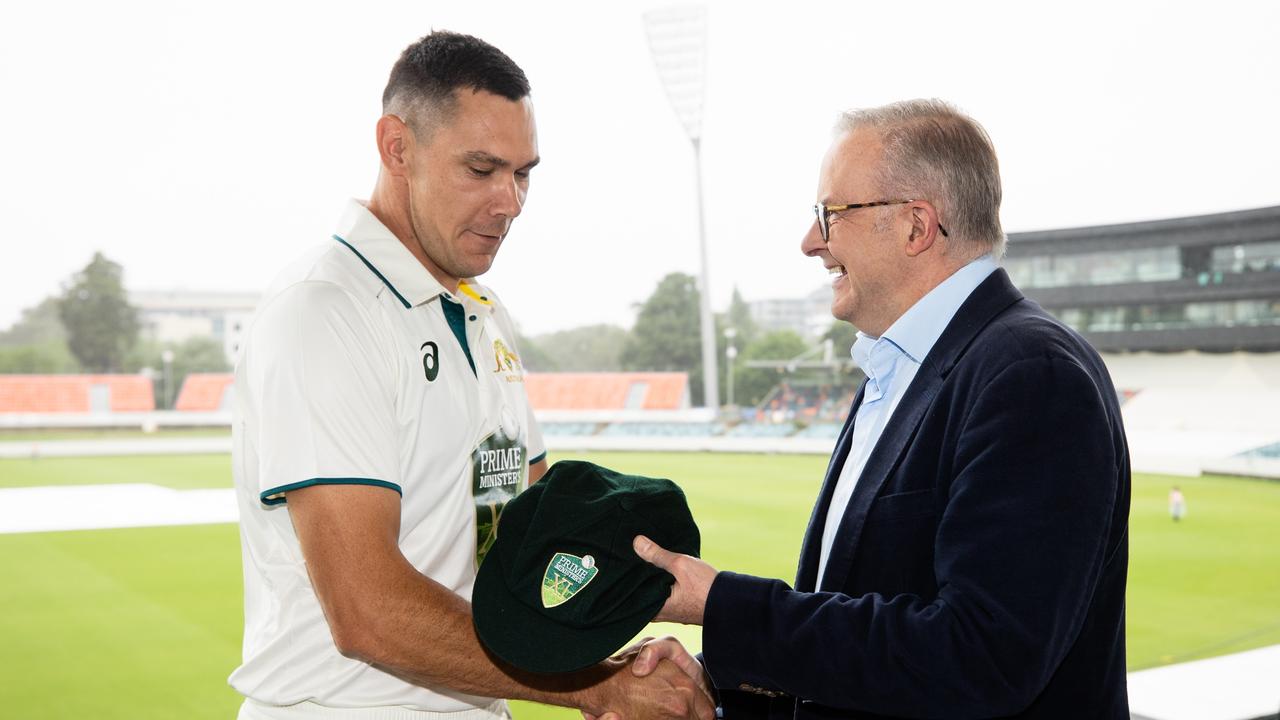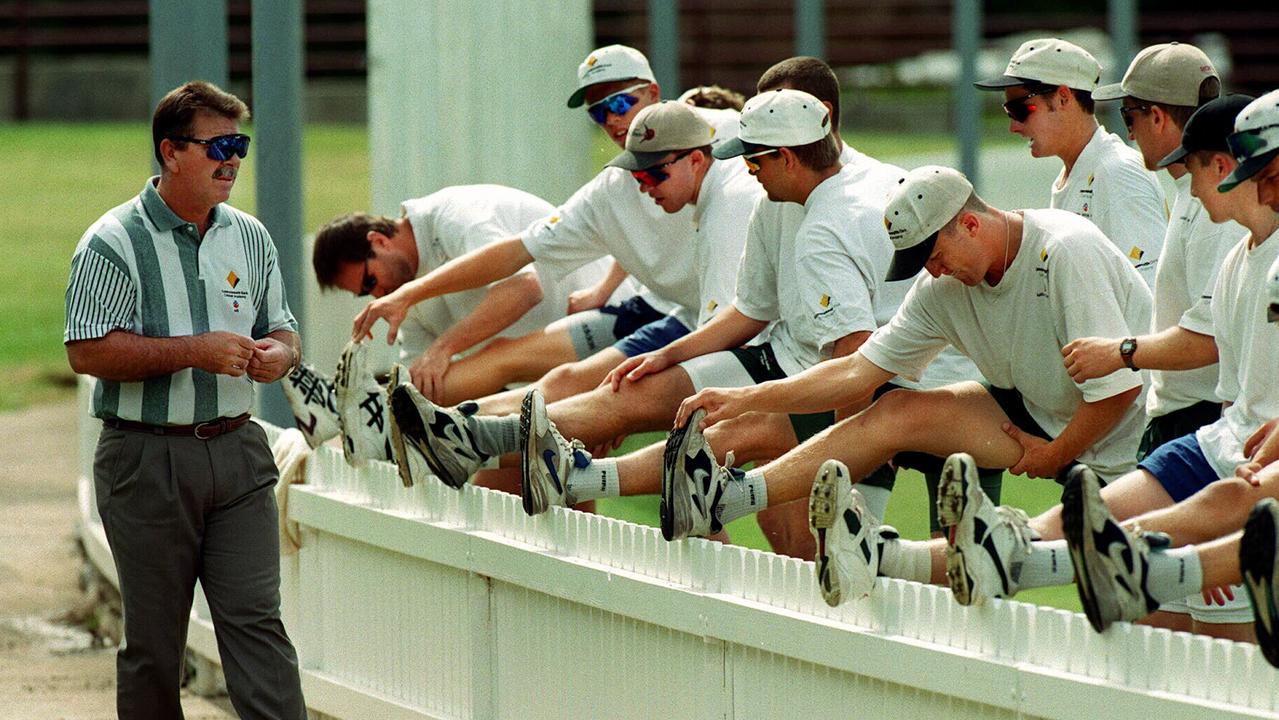David Warner puts controversy aside to put Australia in control
AFTER the hurricane that struck in the aftermath of the Durban Test, the opening jousts of the second contest were a gentle zephyr.

Opinion
Don't miss out on the headlines from Opinion. Followed categories will be added to My News.
AFTER the hurricane that struck in the aftermath of the Durban Test, the opening jousts of the second contest were a gentle zephyr.
Say what you will about David Warner — and he does provoke opinion — he can bat. With controversy swirling and the referees’ wrath poised like a guillotine over his head, his innings in Port Elizabeth was a silencer. Warner kept his mouth shut, batting with quiet determination and he was quietly effective.
IN BALANCE: Unsavoury send off puts Rabada in doubt
HOT WATER: South Africans in trouble for SBW taunt
For this day at least, the Warner-Quinton de Kock altercation may have convinced Australia that aggressive, hard cricket has nothing whatsoever to do with talking — it’s all about players’ deeds.
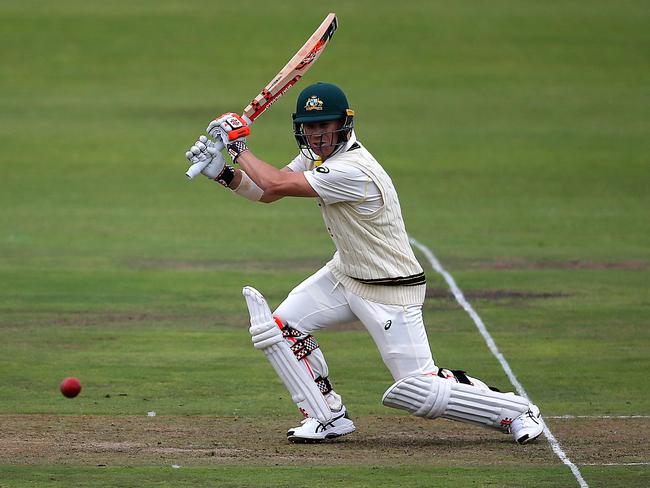
Ironically, the best performer on each side was the player with the executioner’s blade poised above their neck; Warner and Kagiso Rabada. After subduing his natural aggression with bat and mouth, Warner, with a trademark flurry of shots, threatened to bring the series result to a premature conclusion.
Performing his best impersonation of Dr Jekyll and Mr Hyde, Warner went from stubborn defence to all out attack and in the space of two hours he’d propelled Australia to a position of supremacy.
This was the act of a sportsman able to compartmentalise controversy and concentrate on the task in front of him; it was almost as though, like tennis player John McEnroe all those years ago, an altercation is his great motivator.
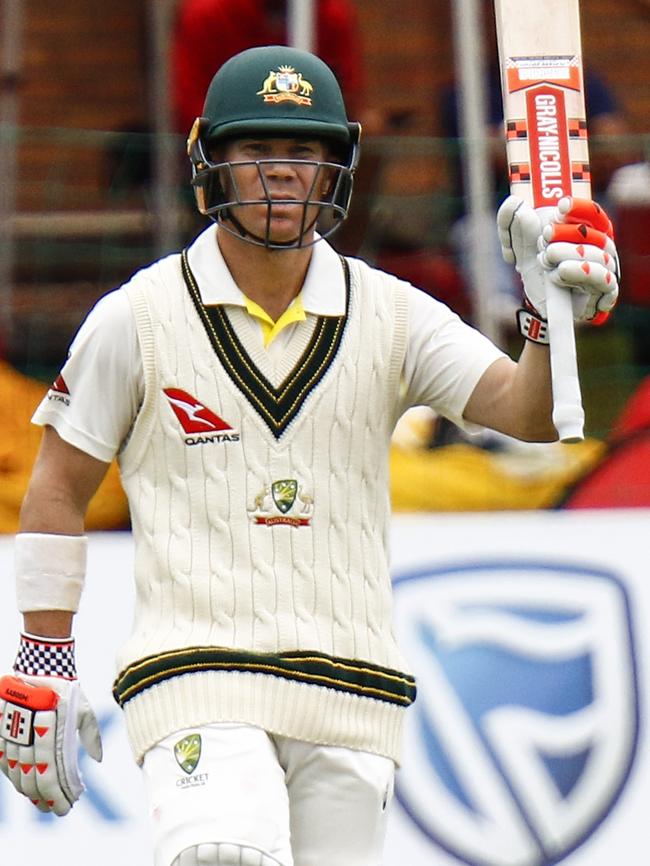
The only problem is in this day and age Australia’s boisterous behaviour in the field at times is tantamount to bullying and that is now frowned upon. The officials would be better able to resolve the situation if they forgot that incessant chatter is a part of the game — because it’s not — and remembered that the cricket field is the Australian team’s workplace.
If it’s going to take a physical altercation for the officials to come down heavily on incessant and unnecessary chatter, then we’re edging ever closer to judgement day.
Rabada played his part in refocusing the attention back on the cricket with a fast bowling clinic. His pace and movement, both through the air and off the pitch, was a further reminder that this series features some of the best young fast bowlers the game has seen.
To enhance his reputation even further, Rabada only decimated the Australian batting line-up after being subjected to an early battering by Warner. His performance was a testament to temperament as well as skill.
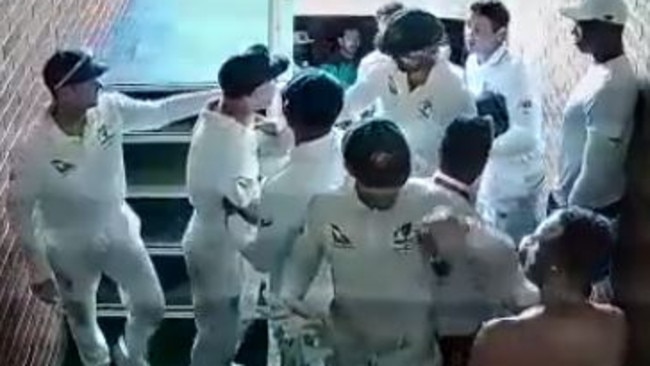
However, those people suffering from controversy deprivation weren’t totally ignored during this exciting battle of cricketing skills. After completely deceiving Steve Smith with late swing to trap him in front, Rabada, in celebrating his triumph, brushed the shoulder of the Australian captain.
This appeared to be nothing more serious than two strong-minded individuals, not wanting to give ground to the other. In fact if it hadn’t been for Smith’s reaction as Rabada passed him it probably would’ve gone unnoticed. It’s also worth noting that if it wasn’t for the dreaded DRS, Smith would’ve been walking in another direction, some distance away from the jubilant bowler.
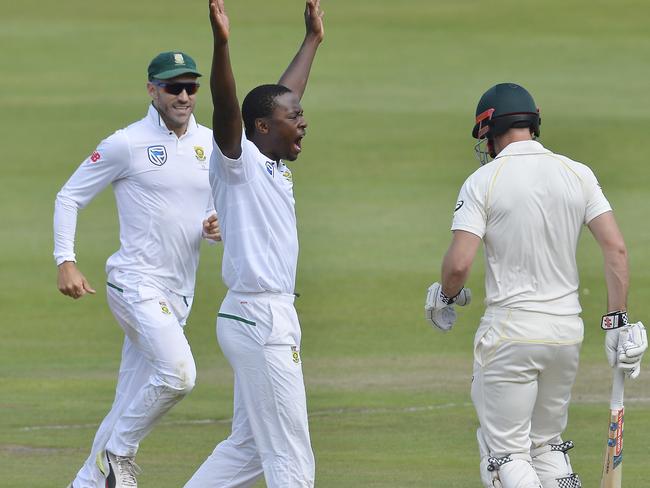
Not only does the DRS encourage players to break one of the important tenets of the game — the umpire’s decision is final — but it also in some cases, brings the vanquished in proximity with the victor at an emotional moment. That is asking for trouble and as this highly combustible series has shown, you don’t need to issue invitations.
Having brought the series to everybody’s notice, Warner then looked as though he was about to quickly kill off the overall contest with an innings of great clarity. However, typical of these two highly competitive sides, Rabada’s electrifying spell of fast bowling has thrown it wide open. Yet another reminder why predictions about the death of Test cricket are not only risky but also premature.
Originally published as David Warner puts controversy aside to put Australia in control

